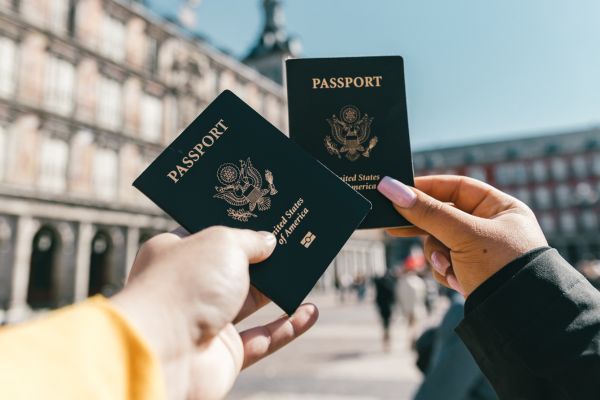Canada, known for its breathtaking landscapes, multicultural cities, and welcoming attitude, is also a popular destination for couples looking to tie the knot. Marrying in Canada can be a dream come true, especially for those visiting on a tourist visa. However, the process involves several steps and legal considerations that must be navigated carefully. This essay provides a comprehensive guide on getting married in Canada while on a tourist visa, addressing key aspects such as legal requirements, necessary documentation, ceremony options, and potential implications for immigration status.
Understanding the Legal Framework
Legal Requirements for Marriage
Before planning a wedding in Canada, it’s crucial to understand the legal requirements. Canada’s marriage laws are governed at the provincial and territorial level, meaning the specifics can vary depending on where you choose to get married. However, some general requirements apply across the country:
- Age Requirement: Both parties must be at least 18 years old. In some provinces, individuals aged 16 or 17 can marry with parental consent.
- Marital Status: Both parties must be single, divorced, or widowed. Proof of divorce or death certificate of a previous spouse is required if applicable.
- Consent: Both parties must give free and informed consent to marry.
- Capacity: Both parties must have the mental capacity to understand the nature of marriage and the responsibilities involved.
Tourist Visa Considerations
A tourist visa, also known as a Temporary Resident Visa (TRV), allows individuals to visit Canada for a limited period, typically up to six months. While on a tourist visa, you can legally get married in Canada, but there are some important considerations:
- Intent to Leave: Holding a tourist visa implies that you will leave Canada at the end of your authorized stay. Planning to get married should not contradict this intention.
- Immigration Intent: If you plan to stay in Canada after marriage, you will need to apply for a change of status, such as a spousal sponsorship for permanent residence. This process should be started only after the marriage.
Documentation and Process
Obtaining a Marriage License
To get married in Canada, you must first obtain a marriage license. The process for obtaining this license varies by province or territory, but generally involves the following steps:
- Application: Both parties must apply for the marriage license together, either online or in person at a municipal office.
- Identification: Provide valid identification, such as a passport or driver’s license. In some provinces, additional documents like birth certificates may be required.
- Proof of Status: If applicable, provide proof of divorce or death certificate of a previous spouse.
- Fee: Pay the required fee, which varies by province.
Waiting Period and Validity
In some provinces, there is a waiting period between obtaining the marriage license and the wedding ceremony, though this is not universally required. The marriage license is typically valid for 30 to 90 days, depending on the province.
Selecting an Officiant
You will need to choose a licensed officiant to perform the marriage ceremony. This can be a religious officiant, a justice of the peace, or another authorized individual. Each province has a list of licensed officiants available.
Planning the Ceremony
Types of Ceremonies
Canada offers various options for wedding ceremonies, catering to different cultural, religious, and personal preferences:
- Civil Ceremony: A civil ceremony is conducted by a government official, such as a judge or justice of the peace, and is typically a straightforward, non-religious ceremony.
- Religious Ceremony: Conducted by a religious officiant, this type of ceremony adheres to the traditions and rituals of a particular faith.
- Destination Wedding: For couples looking to combine their wedding with a vacation, Canada’s scenic locations make for a perfect destination wedding. Popular spots include Banff, Niagara Falls, and the beaches of British Columbia.
Venue Options
From historic sites and luxurious hotels to picturesque parks and private estates, Canada offers a plethora of venue options. Some popular choices include:
- Outdoor Venues: National parks, gardens, and beaches are ideal for nature lovers.
- Indoor Venues: Museums, heritage buildings, and banquet halls offer a more controlled environment, especially useful in unpredictable weather.
- Unique Venues: Some couples opt for unique venues like lighthouses, vineyards, or even aboard a yacht.
Cultural Considerations
Canada’s multicultural society means that you can easily find services and venues that cater to diverse cultural traditions. Whether you’re looking for an Indian wedding with traditional attire and ceremonies, a Chinese wedding with tea ceremonies, or a Western-style wedding with a white dress and vows, Canada can accommodate your needs.
After the Wedding
Marriage Certificate
After the ceremony, the officiant will provide a record of solemnization, but this is not the same as the official marriage certificate. You will need to apply for a marriage certificate from the provincial or territorial vital statistics office. This document serves as the official proof of marriage.
Immigration Implications
If you plan to stay in Canada after the wedding, you will need to address your immigration status. The most common pathway is through spousal sponsorship. Here are the key steps:
- Eligibility: Ensure that both the sponsor (Canadian citizen or permanent resident) and the applicant (spouse) meet the eligibility criteria.
- Application Process: Submit a spousal sponsorship application to Immigration, Refugees and Citizenship Canada (IRCC). This involves providing extensive documentation, including proof of relationship, financial support, and medical examinations.
- Processing Time: Processing times can vary, but it typically takes several months to over a year. During this time, the applicant may be eligible for a temporary resident permit or a work permit.
Travel Considerations
If you plan to leave Canada after the wedding, ensure that your tourist visa is still valid. If you wish to return to Canada, you may need to apply for a new visa, depending on your country of origin.
Potential Challenges and Tips
Legal and Administrative Challenges
Navigating the legal and administrative requirements can be challenging, especially if you are unfamiliar with Canadian laws and processes. Here are some tips to ease the process:
- Research: Thoroughly research the specific requirements and processes of the province or territory where you plan to marry.
- Consult Professionals: Consider consulting with a wedding planner, legal expert, or immigration consultant to ensure you meet all requirements.
- Prepare Documentation: Ensure all necessary documents are prepared and authenticated well in advance.
Cultural and Personal Considerations
Getting married in a foreign country can involve cultural and personal adjustments. Here are some considerations:
- Cultural Sensitivity: Be mindful of Canadian customs and traditions, especially if you are incorporating local elements into your wedding.
- Communication: Clear communication with vendors, officiants, and guests is crucial, especially if there are language barriers.
- Support System: Having a support system, whether friends, family, or local contacts, can make the process smoother and more enjoyable.
Conclusion
Getting married in Canada on a tourist visa is a feasible and exciting option for couples from around the world. By understanding the legal requirements, preparing the necessary documentation, and planning the ceremony carefully, you can ensure a memorable and legally binding wedding.
While the process involves several steps and potential challenges, the reward of marrying in one of the world’s most beautiful and welcoming countries is well worth the effort.
Whether you choose a civil ceremony in a charming city hall, a grand religious ceremony in a historic church, or a romantic outdoor wedding amid Canada’s stunning natural landscapes, your Canadian wedding can be the beginning of a beautiful new chapter in your lives.







